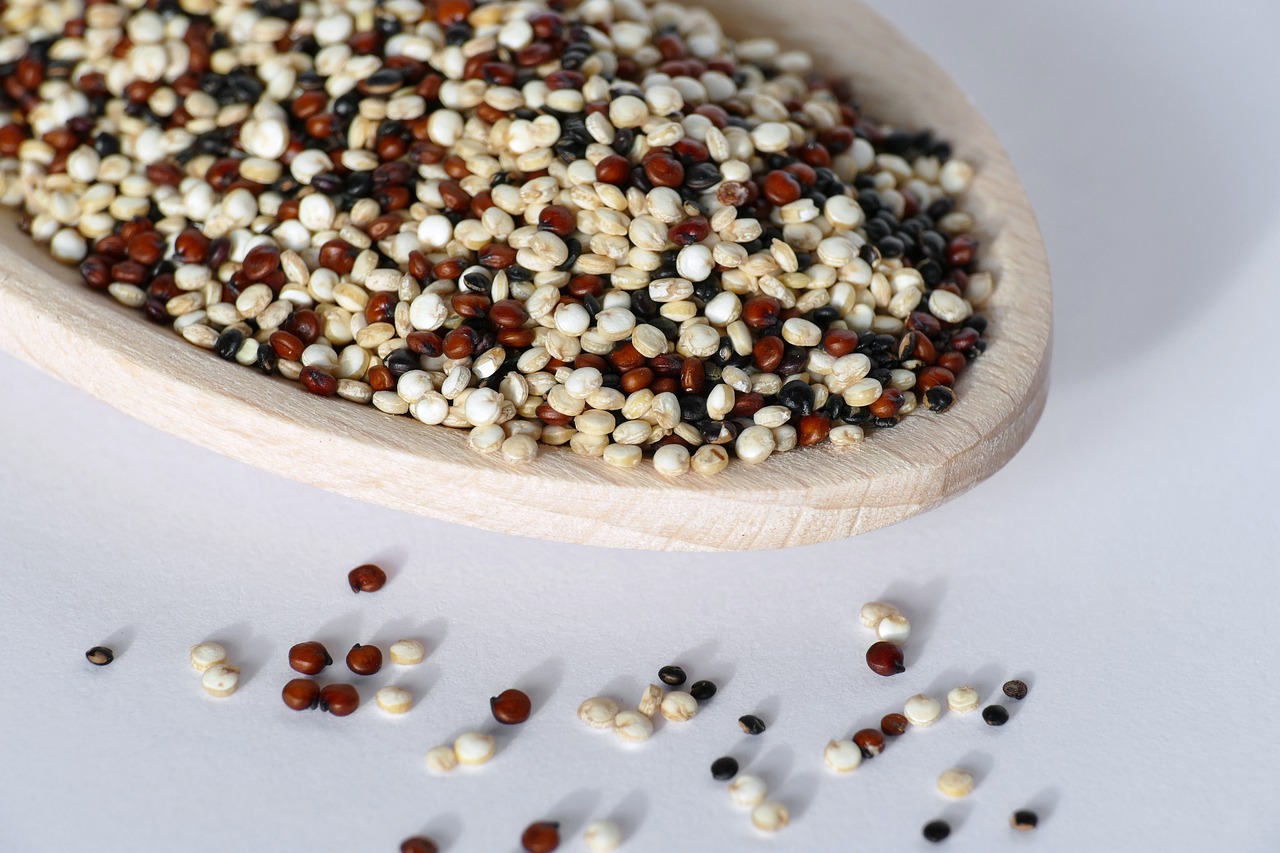Macronutrients
Macronutrients and Alzheimer's
Macronutrients are classified as dietary carbohydrates, fats and proteins. Macronutrient amounts have surprising effects on Alzheimer’s outcomes. Before getting into specific diets, it is important to have a clear understanding of how these macronutrients affect Alzheimer’s risk. One particular compound stands out as a major cause of Alzheimer’s disease. Sugar. So, we’ll start there.
Sugar and Alzheimer's
Sugar is rapidly turned into energy within cells, but when cells are inundated with sugar, eventually they fail to respond to insulin. Insulin is a hormone that triggers cells to transfer sugar into the cell. When cells become insulin resistant, they no longer respond to the trigger to bring sugar into the cell. Alzheimer’s and insulin resistance is intertwined, so any food with excess sugar can immediately be placed in the bad category. But is there any evidence to back this up?
Of course there is.
Studies Investigating Sugar and Alzheimer's
Glycemic index is a ranking of foods based on how quickly that food can raise or lower blood sugar levels. High glycemic index foods are typically loaded with sugar, like soda, white bread, crackers, doughnuts, and candy. Low index foods have less of an immediate effect on blood sugar. Examples of foods low on the glycemic index are cauliflower, avocado, zucchini, almonds, eggs, and meat. In 2017, one study assessed the diet of 128 normal participants by providing them with National Cancer Institute Diet History Questionnaire (DHQ) II. Participants who tended to eat foods categorized as high glycemic index foods had more beta amyloid accumulation in their brain and scored worse on cognitive tests.1
A similar study looked at 5,189 subjects over a ten year period. Every two years cognitive tests were given. Blood glucose levels were measured by testing hemoglobin A1c levels. The hemoglobin A1c test measures how much sugar is attached to hemoglobin and is an accurate measure of excessive sugar in the body. Measuring excess sugar using hemoglobin A1c is one way to diagnose diabetes. In the study, the investigators found that an increase in blood sugar (as measured by the higher hemoglobin A1c levels) corresponded to an increase in cognitive decline.2
However, it wouldn’t be the real world without some conflicting data. When researchers analyzed the data from the Framingham study, they found something unexpected. They looked at people’s consumption of artificially sweetened beverages versus beverages made with real sugar and they found that artificially sweetened beverages were linked to Alzheimer’s and an increase in stroke but did not find the same correlation with beverages sweetened with sugar.3
Let’s dig deeper for a better understanding.
Carbohydrates and Alzheimer's
Sugar is a type of carbohydrate. In fact, carbohydrates are just long chains of sugar molecules connected to each other. Carbohydrates can be grouped as monosaccharides, disaccharides, oligosaccharides or polysaccharides. Glucose is a monosaccharide because it is a single sugar molecule. Sucrose is an example of a disaccharide because fructose can be broken down into two monosaccharides (glucose and fructose). Oligosaccharides are short chains of sugars such as raffinose which is found in whole grains, broccoli and asparagus. Raffinose is broken down to three different monosaccharides, galactose, glucose, and fructose. Polysaccharides are long chains of sugars and can be used as energy storage (such as starch or glycogen) or as structural components in plants (such as cellulose). In general, monosaccharides like glucose and fructose raise blood sugar levels quickly. On the other hand polysaccharides tend to be in foods with vitamins, fiber and minerals which takes longer to digest and therefore raise blood sugar more slowly. However, foods like white bread contain mostly starch with few beneficial nutrients and is digested quickly allowing the broken down sugars to raise blood sugar levels rapidly.
Studies have not only looked at simple carbohydrates, like sugar, but also at carbohydrates in a more general sense. A study conducted at the Mayo clinical who tracked the diet of 937 normal elderly participants over a 3.7 year period. At baseline and every 15 months after the start of the study, participants were given a series of cognitive tests. By the end of the study, two hundred patients were diagnosed with dementia or mild cognitive impairment (MCI). Subjects who ate more carbohydrates were more frequently diagnosed with dementia or MCI (89% increased risk) than those who ate less carbohydrates but more fat and protein (44% decreased risk).4
Many high profile Alzheimer’s authors and researchers, such as Dr. Bredesen, have recommended a ketogenic diet (high fat/low carb diet) to reduce Alzheimer’s risk, however increasing fat in your diet to prevent Alzheimer’s risk still seems to be a controversial subject among other Alzheimer’s experts. However, all fats are not created equal. Apoe4 carriers may have a difficult time metabolizing saturated fat and Bredesen and others recommend that Apoe4 carriers try to avoid saturated fats. Foods such as red meat, chicken skin, whole milk, butter, coconut oil and lard are all examples of foods with high saturated fat. We’ll discuss specific diets, like the ketogenic diet in the next section, but for now let’s take a look at a typical western diet of high fat and high sugar diet compared to a low fat, low sugar diet in regards to Alzheimer’s risk.
Western Diet Versus a Low Fat Low Sugar Diet
One observational study which is referenced throughout this website is titled Apolipoprotein E ε4 magnifies lifestyle risks for dementia: a population-based study. It examines various lifestyle choices and correlates those choices to dementia risk in Apoe4 carriers and noncarriers. The study used data from 1149 individuals that were examined originally during mid-life and then re-examined 21 years later (on average). The study found that saturated fat consumption was a major dementia risk factor for people with Apoe4. The group of Apoe4 carriers who ate the highest amount of fat were 11.29 times more likely to have dementia than Apoe4 carriers who ate the least amount of saturated fat. The opposite was true for polyunsaturated fat. Apoe4 carriers who ate the least amount of polyunsaturated were almost twice as likely to have dementia compared to Apoe4 carriers who ate the highest amounts of polyunsaturated fat. The data suggests that for Apoe4 carriers saturated fat consumption is extremely detrimental whereas polyunsaturated fat is protective.5
Randomized clinical trials (RTCs) are the gold standard when it comes to health data and so they should be the studies that we give the most weight to as we try to dissect these complex questions. One study by Carvalho-Well, et al. looked at saturated fat and highlighted the importance of one’s APOE genotype. In an intervention clinical trial (the Satgene study), participants were given three different diets:
- A low saturated fat diet
- A high saturated fat diet
- A high saturated fat diet supplemented with DHA
DHA is an omega-3 fatty acid found in fish and is known to promote brain health. The study was designed to examine cardiovascular differences between diets for Apoe E3/3 and Apoe E3/4 genotypes. The switch from the high saturated fat diet to the saturated low fat diet caused:
- A 17% reduction in triglycerides for the Apoe E3 homozygous group
- A 30% reduction in triglycerides for the Apoe E3/4 heterozygous group
A similar effect was seen with C-Reactive protein, a biomarker for inflammation. The positive effects were greater in the group with Apoe4. These results indicate that switching away from a high saturated fat diet to a low saturated fat diet has greater benefits for an Apoe E4 carrier than it does for other genotypes. Apoe E4 carriers have much better health outcomes when switching from a high saturated fat diet to a low saturated fat diet compared to other APOE genotypes and this result was verified by similar studies.6
If you are an Apoe E4 carrier, you will see overall health benefits, and specific benefits in regards to Alzheimer’s, if you switch from a high saturated fat diet to a low saturated fat diet. However, science is sometimes not black and white. One study by Hanson et al. showed that a high fat diet could increase cognition in Apoe4 carriers. There are a lot of compounding factors involved with a disease like Alzheimer’s and studies. Even studies done by the same person or same group, can have contradictory results. A previous study by the same group looking at high and low fat diet on Alzheimer’s biomarkers found no statistically significant difference between Apoe4 carriers and before that, the same group found that cognition of Apoe4 carriers and non-carriers behaved the same on a high fat or low fat diet. The small number of subjects may be to blame, but ages of subjects, and disease stage may also give conflicting results. For example, glucose uptake in the brain is impaired in Alzheimer’s, so it could be possible that short term uptake of high glycemic index foods and high saturated fat improves cognition, while the same diet long term might destroy cognition. Larger randomized clinical trials are needed to shed light on the long term effect of saturated fat on cognition for Apoe4 carriers, but the current thinking among Alzheimer’s disease experts is that saturated fat negatively affects people with an Apoe4 allele.7,8,9
Proteins and Alzheimer's Disease
We looked at carbohydrates and fats. Now let’s take a look at proteins. A study performed at the Rush Alzheimer’s Disease Center investigated muscle strength and Alzheimer’s risk. When adjusted for age, sex, and education, the investigators found that one unit increase of muscle strength reduced reduced Alzheimer’s risk by 43%. Subjects in the 90% percentile of muscle strength had a 61% reduced risk of Alzheimer’s compared to subjects in the 10% percentile of muscle strength. We’ll talk more about the benefits of exercise in a later chapter, but I wanted to make the point that more protein in your diet contributes to more muscle mass which reduces Alzheimer’s risk.10,11
If you remember, proteins are made up of long chains of amino acids. Amino acids themselves have also been shown to be important in preventing Alzheimer’s. Tryptophan is an essential amino acid which means that humans can’t synthesize it. Therefore, tryptophan must be obtained through diet, primarily by eating proteins. In a double-blind crossover study, subjects with Alzheimer’s and healthy subjects were each given a tryptophan-free amino acid drink which was designed to induce tryptophan deletion. Later, at a different time, both groups were given a drink that included a balanced mixture of amino acids. The subjects were given a cognition test four hours after drinking each drink. Healthy subjects had no change between drinks, but Alzheimer’s patients scored worse after drinking the drink without tryptophan. Some scientists believe that tryptophan is special in that it plays a critical role in Alzheimer’s disease, however this study illustrates not only the need for tryptophan but the need to include proteins into your diet since proteins will contain tryptophan.12
Alzheimer's Diet and Nutrition Sections
Macronutrient References on this Page:
- Zheng F, Yan L, Yang Z, Zhong B, Xie W. HbA1c, diabetes and cognitive decline: the English Longitudinal Study of Ageing. Diabetologia. 2018 Apr;61(4):839-848. doi: 10.1007/s00125-017-4541-7. Epub 2018 Jan 25. PMID: 29368156; PMCID: PMC6448974.
- Roberts RO, Roberts LA, Geda YE, Cha RH, Pankratz VS, O’Connor HM, Knopman DS, Petersen RC. Relative intake of macronutrients impacts risk of mild cognitive impairment or dementia. J Alzheimers Dis. 2012;32(2):329-39. doi: 10.3233/JAD-2012-120862. PMID: 22810099; PMCID: PMC3494735.
- Kivipelto M, Rovio S, Ngandu T, Kåreholt I, Eskelinen M, Winblad B, Hachinski V, Cedazo-Minguez A, Soininen H, Tuomilehto J, Nissinen A. Apolipoprotein E epsilon4 magnifies lifestyle risks for dementia: a population-based study. J Cell Mol Med. 2008 Dec;12(6B):2762-71. doi: 10.1111/j.1582-4934.2008.00296.x. Epub 2008 Feb 8. PMID: 18318693; PMCID: PMC3828889.
- Carvalho-Wells AL, Jackson KG, Lockyer S, Lovegrove JA, Minihane AM. APOE genotype influences triglyceride and C-reactive protein responses to altered dietary fat intake in UK adults. Am J Clin Nutr. 2012 Dec;96(6):1447-53. doi: 10.3945/ajcn.112.043240. Epub 2012 Nov 7. PMID: 23134888.
- Hanson AJ, Bayer-Carter JL, Green PS, Montine TJ, Wilkinson CW, Baker LD, Watson GS, Bonner LM, Callaghan M, Leverenz JB, Tsai E, Postupna N, Zhang J, Lampe J, Craft S. Effect of apolipoprotein E genotype and diet on apolipoprotein E lipidation and amyloid peptides: randomized clinical trial. JAMA Neurol. 2013 Aug;70(8):972-80. doi: 10.1001/jamaneurol.2013.396. PMID: 23779114; PMCID: PMC3859238.
- Hanson AJ, Bayer JL, Baker LD, Cholerton B, VanFossen B, Trittschuh E, Rissman RA, Donohue MC, Moghadam SH, Plymate SR, Craft S. Differential Effects of Meal Challenges on Cognition, Metabolism, and Biomarkers for Apolipoprotein E ɛ4 Carriers and Adults with Mild Cognitive Impairment. J Alzheimers Dis. 2015;48(1):205-18. doi: 10.3233/JAD-150273. PMID: 26401941.
- Bayer-Carter JL, Green PS, Montine TJ, VanFossen B, Baker LD, Watson GS, Bonner LM, Callaghan M, Leverenz JB, Walter BK, Tsai E, Plymate SR, Postupna N, Wilkinson CW, Zhang J, Lampe J, Kahn SE, Craft S. Diet intervention and cerebrospinal fluid biomarkers in amnestic mild cognitive impairment. Arch Neurol. 2011 Jun;68(6):743-52. doi: 10.1001/archneurol.2011.125. PMID: 21670398; PMCID: PMC3175115.
- Glenn JM, Madero EN, Bott NT. Dietary Protein and Amino Acid Intake: Links to the Maintenance of Cognitive Health. Nutrients. 2019 Jun 12;11(6):1315. doi: 10.3390/nu11061315. PMID: 31212755; PMCID: PMC6627761.
- Boyle PA, Buchman AS, Wilson RS, Leurgans SE, Bennett DA. Association of muscle strength with the risk of Alzheimer disease and the rate of cognitive decline in community-dwelling older persons. Arch Neurol. 2009 Nov;66(11):1339-44. doi: 10.1001/archneurol.2009.240. PMID: 19901164; PMCID: PMC2838435.
- Porter RJ, Lunn BS, Walker LL, Gray JM, Ballard CG, O’Brien JT. Cognitive deficit induced by acute tryptophan depletion in patients with Alzheimer’s disease. Am J Psychiatry. 2000 Apr;157(4):638-40. doi: 10.1176/appi.ajp.157.4.638. PMID: 10739429.
Back to Diet and Alzheimer's:
Determine which diet and nutrition plan is best for you based on your Apoe status and subtype.














